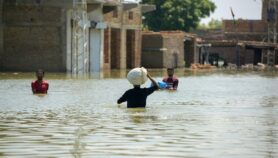By: Gozde Zorlu
Send to a friend
The details you provide on this page will not be used to send unsolicited email, and will not be sold to a 3rd party. See privacy policy.
Cholera infections are ten times higher than the number of cases reported to the World Health Organisation (WHO), according to new estimates of the global disease burden.
Cholera is caused by eating food or drinking water contaminated with the Vibrio cholera bacterium. The disease causes watery diarrhoea and severe dehydration that can be fatal.
In a study published in the Bulletin of the World Health Organisation this month (1 March), researchers from the International Vaccine Institute, in South Korea found a more accurate estimate of the global cholera burden is nearly three million cases a year, and around 93,000 deaths — the majority in children under the age of five.
These figures are ten times higher than those reported to the WHO, and suggest that many governments are unable to provide reliable figures or are deliberately under-reporting outbreaks despite an international law requiring them to do so.
To reach this conclusion, the team used data on cholera reported to the WHO, but also incorporated information from previous multi-country studies, alternative disease monitoring systems, and media and government reports. They evaluated each country surveyed individually in order to estimate the disease‘s likely extent.
The study’s authors said several factors were to blame for the official underestimation of the disease burden, including poor in-country surveillance, but also a reluctance on the part of many governments to conduct cholera surveillance or report cases because it could result in losses to trade and tourism.
"Unless the magnitude of the problem is reported, we will not know how to solve [it]," Mohammad Ali, who led the study, told SciDev.Net.
Under-reporting of cholera is a major problem in India, according to G. Balakrish Nair, executive director of the country’s Translational Health Science and Technology Institute.
"The moment you say cholera, there is a certain political connotation. It is clear indicator that there is lack of hygiene or a mix up of drinking and sewage water, which is a reflection of poor governance," he told SciDev.Net.
He also said the resources were not always available to diagnose cholera, especially in remote areas.
Access to resources and funding are more of a problem than under-reporting in Africa, according to Martin Mengel, project coordinator for Africhol, which aims to improve cholera prevention and treatment in Africa.
"Many countries simply can’t afford it," he said.
Worldwide, around 1.4 billion people are at risk of cholera — mostly in China, India, Indonesia, and on the African continent.
A cheap vaccine is available and, along with water and sanitation improvements, researchers hope the disease can be contained or even eliminated within ten years.
Ali is now leading a study in collaboration with the WHO to assess the roll-out of a cheap vaccine across the Zanzibar Islands where the disease is endemic. If successful, the programme could be used as a model for other countries, he said.
Link to full paper in Bulletin of the World Health Organization













